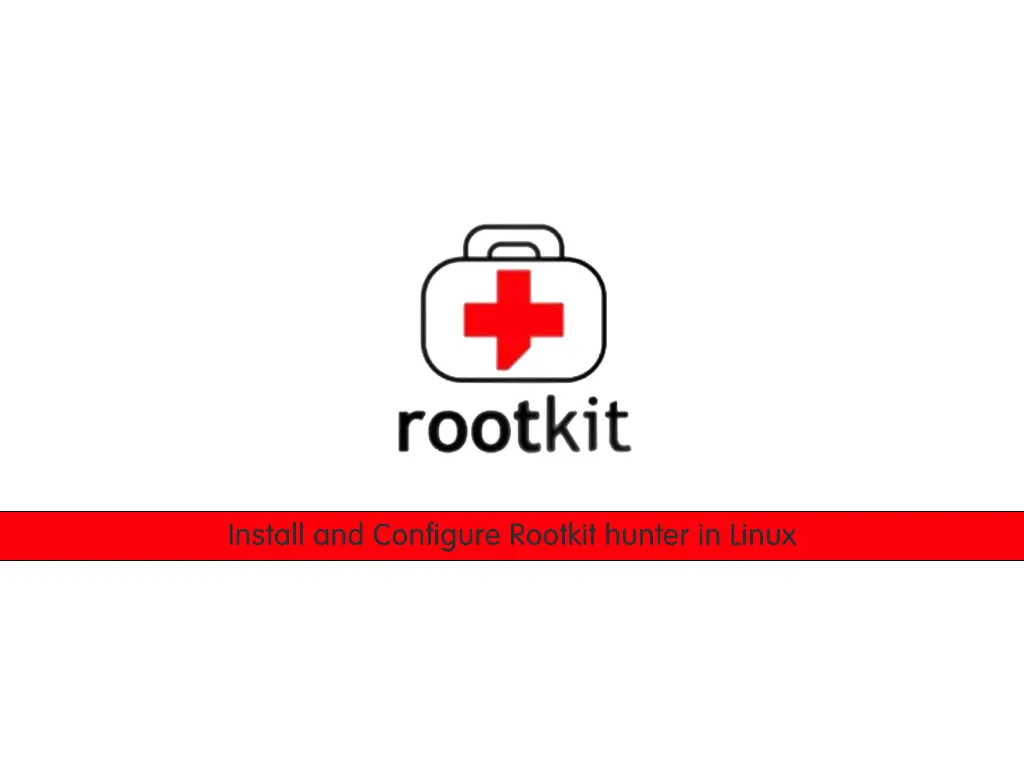Now Reading: How to Install and Use rkhunter on Linux for Rootkit Scanning
-
01
How to Install and Use rkhunter on Linux for Rootkit Scanning
How to Install and Use rkhunter on Linux for Rootkit Scanning

How to Install and Use rkhunter on Linux for Rootkit Scanning
Published on: April 5, 2025
📢 Introduction: Linux Security and Rootkits
Linux systems are known for their robust security features. However, malicious software such as rootkits can compromise even the most secure environments by operating at the kernel level.
In this guide, you’ll learn how to install and use rkhunter (Rootkit Hunter), a powerful open-source tool designed to detect rootkits, backdoors, and local exploits on Linux systems.
🔍 What is rkhunter?
rkhunter (Rootkit Hunter) is an open-source security tool used to scan Linux systems for signs of rootkits, backdoors, and other security vulnerabilities. It works by checking system binaries, files, and processes for known signatures of malicious software.
🧰 How to Install rkhunter on Debian/Ubuntu-Based Systems
Follow these steps to easily install rkhunter on your Linux system:
Step 1: Update Package List
sudo apt updateStep 2: Install rkhunter
sudo apt install rkhunter -yStep 3: Update rkhunter Database
sudo rkhunter --update🔍 How to Perform a Rootkit Scan with rkhunter
1. Basic Scan (Quick Check)
sudo rkhunter --check2. Full System Scan (All Checks)
sudo rkhunter --check --sk–sk stands for “skip all prompts” — this runs the scan automatically.
3. Scan Specific Sections Only
sudo rkhunter --check --system-language en --skip-keypress --enable all --disable none📋 How to Read rkhunter Scan Results
After the scan completes, you may see output like this:
[Rootkit Hunter version 1.4.6]
Checking system for rootkits...
Possible rootkit installed: Possible Linux/Ebury - Based SSH TrojanCommon Warnings and Their Meanings
| Warning | Meaning |
|---|---|
Possible rootkit installed |
A rootkit might be present on your system. |
Application 'ps' has been modified |
The ps command might have been tampered with. |
Hidden file found |
A hidden file or directory was detected. |
Suggested action |
Recommended steps to take based on the warning. |
🧪 How to View rkhunter Logs
rkhunter saves all scan results in a log file. You can view it with the following command:
cat /var/log/rkhunter/rkhunter.log🧹 Post-Scan Actions
If rkhunter detects a potential threat:
- Verify the results: Confirm whether the warning is a false positive or a real threat.
- Close security gaps: Update outdated software and disable unnecessary services.
- Run additional scans: Use tools like
chkrootkitfor cross-verification. - Reinstall the system: If a serious threat is found, consider a fresh OS installation.
🧩 Additional Security Tools
1. Run chkrootkit for Extra Scanning
sudo apt install chkrootkit -y
sudo chkrootkit2. Check System Logs
journalctl -xe3. Inspect Network Connections
ss -tulnp📝 Summary
| Topic | Description |
|---|---|
| What is rkhunter? | A tool to detect rootkits, backdoors, and local exploits |
| Installation | Installed via apt install rkhunter |
| Scanning | Use rkhunter --check for scanning |
| Log File | Located at /var/log/rkhunter/rkhunter.log |
| Extra Tools | Use chkrootkit for additional scanning |






